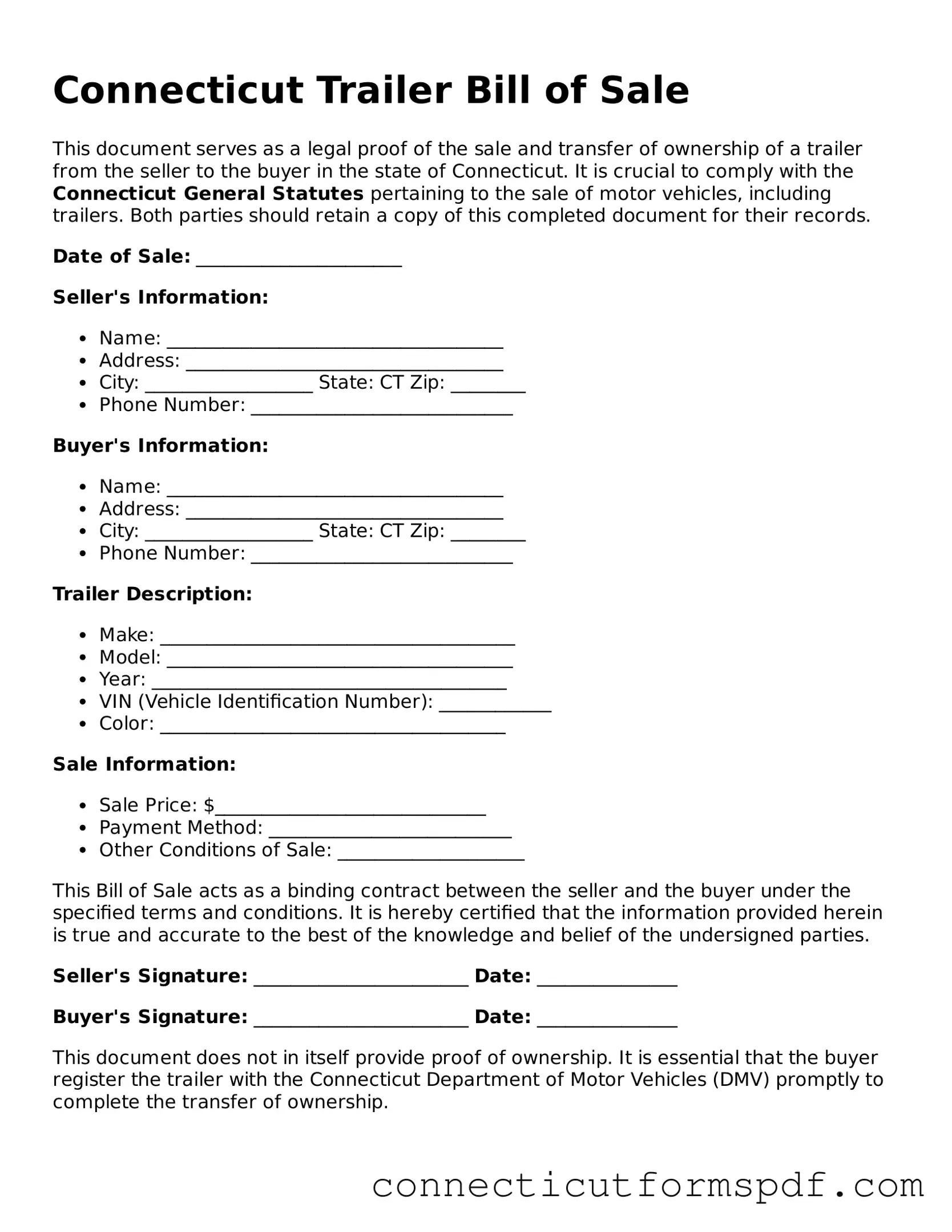Connecticut Trailer Bill of Sale Form
The Connecticut Trailer Bill of Sale form serves as a legal document to record the sale and purchase of a trailer in the state of Connecticut, solidifying the transfer of ownership from seller to buyer. It provides crucial information including details of the transaction, the buyer, the seller, and the trailer itself. To ensure a smooth transfer of ownership, interested parties are encouraged to accurately complete and submit the form by clicking the button below.
Launch Editor Now

Connecticut Trailer Bill of Sale Form
Launch Editor Now

Launch Editor Now
or
Click for Trailer Bill of Sale PDF
Your form is not complete yet
Edit and complete Trailer Bill of Sale online in just a few steps.